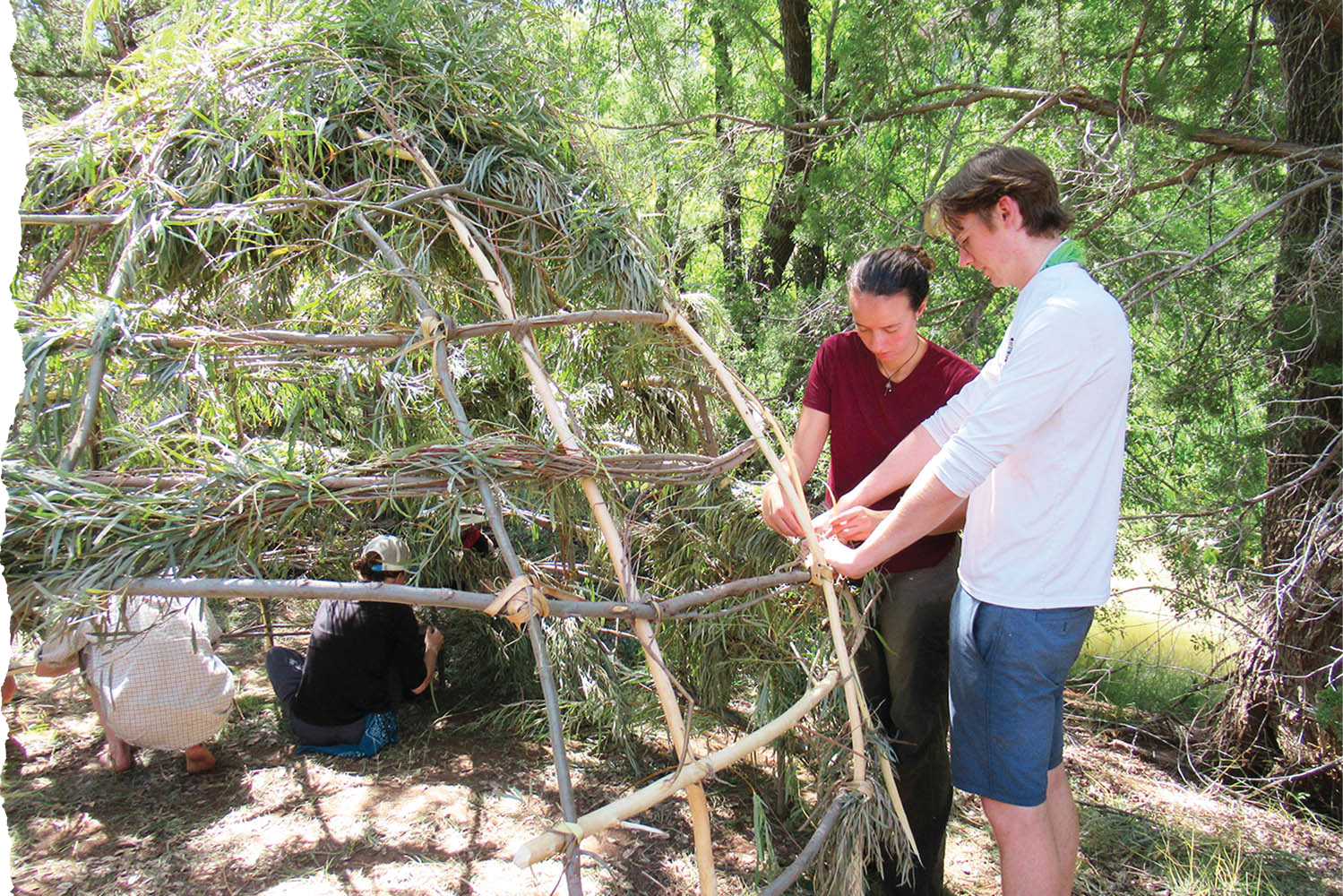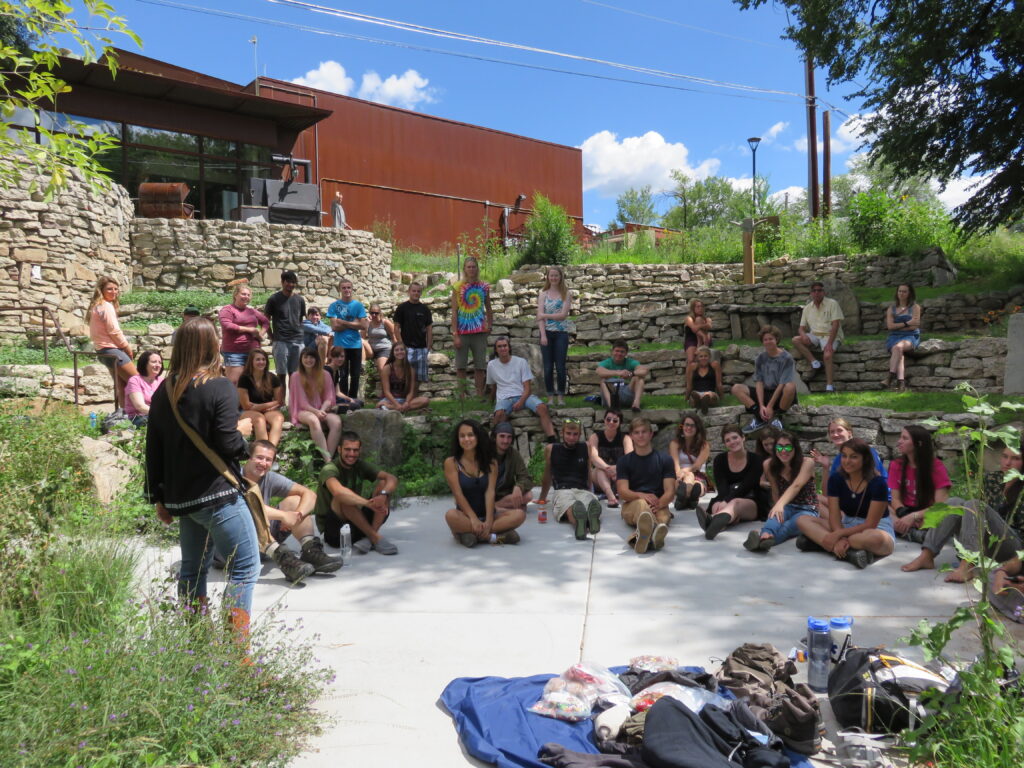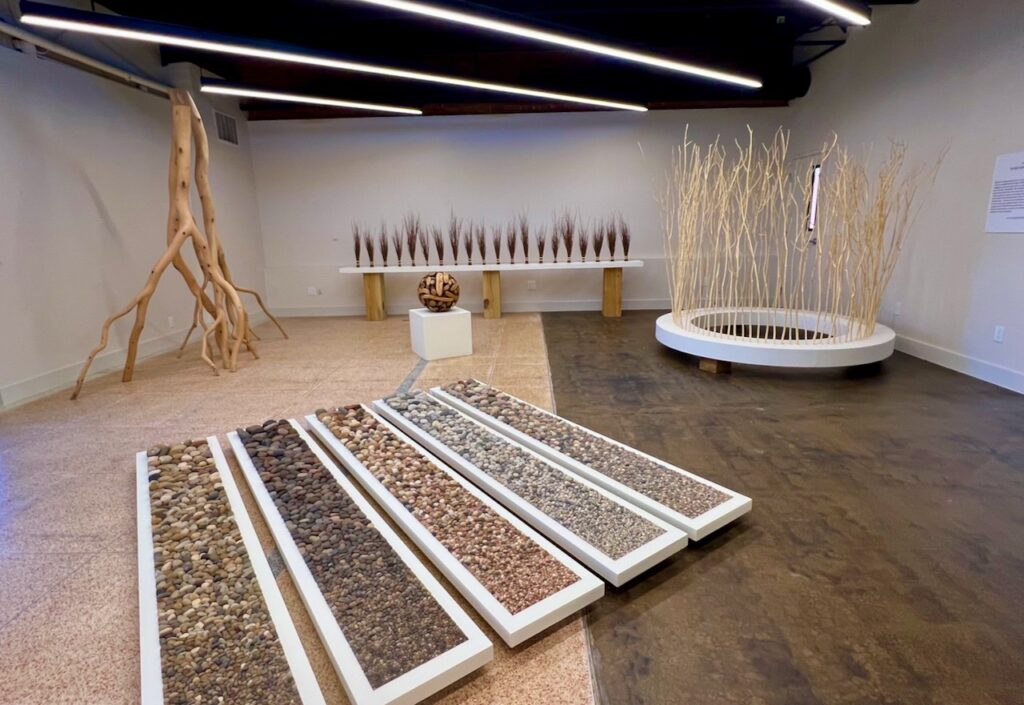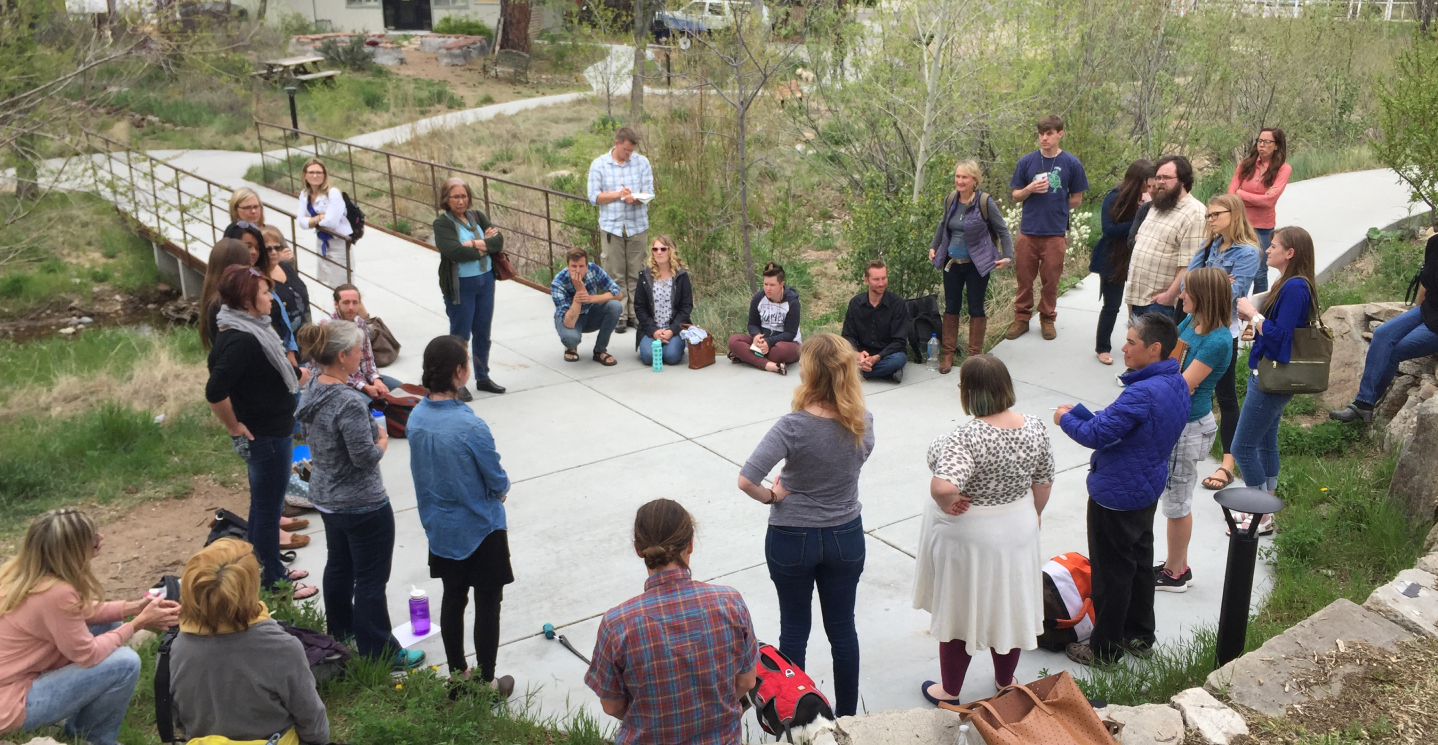
Regenerative Design MA
Why this program?
The MA in Regenerative Design attracts students who are driven to address the profound environmental and social challenges of our time. This program invites learners into a transformative, hands-on journey that centers on a regenerative design process, one rooted in deepening our relationships with the more-than-human world. By blending experiential learning with ecological empathy, students engage directly with the complexities of sustainable design, preparing to innovate solutions that support both human and planetary wellbeing.
The MA in Regenerative Design is a limited-residency program that blends coursework with pioneering design insights from global leaders, equipping you with the skills and support needed to collaborate with community partners on projects with lasting impact.
Foundational courses lay the groundwork for understanding regenerative design, while later stages of the program encourage self-directed, local projects that bring living-systems, biophilic, and regenerative design principles to life. An immersive residency either at Prescott College or one of our field or partner campuses provides hands-on experience with regenerative design processes, techniques, and applications, deepening your practical understanding in a real-world context.
What will this program look like?
Students will engage with the unprecedented environmental and social challenges that our planet faces today, requiring a new and more nuanced form of design thinking. While historically, design efforts have focused more on human-centered solutions, regenerative design considers our complex and co-dependent ecosystems as an emergent whole. Questions that will be explored in this program include:
- How do we design our habitats, products, and systems to authentically engage with a more-than-human world?
- How can regenerative design restore ecosystems and empower local communities while preserving cultural identity?
- What indigenous knowledge and ways of life can inform our decision-making and design proposals?
- How can we make multi-species thinking central to human systems design?
Students in this limited-residency MA in Regenerative Design program will consider these and other challenges through the lenses of social justice, emerging technologies, education, and design frameworks while developing acute problem-solving skills that will help address challenges created by our dependence on outdated design principles and practices, and innovate new possibilities.
This program is designed to cultivate professional expertise in regenerative design by building core competencies in both technical skills and collaborative practices. Through iterative design processes and exploration of the human-nature interface, students will develop innovative solutions that draw from a wide range of perspectives, empowering them to make meaningful contributions to the field of regenerative design.
This program places a strong emphasis on professional training, equipping students with the practical skills and tools needed to drive meaningful change. Through hands-on projects, collaborative workshops, and exposure to leading design methodologies, students will gain proficiency in critical areas like systems thinking, ecological assessment, as well as community- and ecologically-engaged design. By working alongside industry professionals and community partners, students will develop expertise in regenerative design techniques that address real-world environmental and social issues.
The program’s focus on skill development ensures that graduates are prepared not only to innovate in their field but to lead transformative initiatives in sustainability, ecosystem restoration, and culturally responsive design. Some partners you might have the chance to work with include:
The Dopoi Center, Maasailand, Kenya
The Kino Bay Center, Mexico
Ecosa Sustainable Design, Arizona
Thoreau College, Wisconsin
MOME University, Budapest
Burren College of Art, Ireland
Siendo Naturaleza, Peru
What can you do with this degree?
Graduates of the MA in Regenerative Design at Prescott College are well positioned to pursue careers that fuse ecological awareness with innovative design across many sectors. With this degree, you might lead sustainability initiatives in corporate or non-profit settings, design resilient communities through urban planning, or consult on regenerative practices in architecture and agriculture. Other pathways include roles in environmental advocacy, systems design, or educational outreach, all focused on developing solutions that regenerate ecosystems and foster social equity. This program opens doors to impactful work that supports a sustainable, regenerative, and flourishing future for both human and more-than-human communities.
Key Program Information
Number of Credits
36
Fall 2026 Application Deadlines
Priority Deadline – June 1
Regular Deadline – August 1
Admissions & Apply
Experiential, Hands-On Learning: Engage in an immersive limited-residency program combining coursework with real-world projects in regenerative design, guided by leading experts from around the globe.
Community-Centred Projects: Collaborate with international and local partners to develop design solutions that respect ecosystems, empower communities, and honour cultural identities.
Professional Skills Development: Build practical skills in systems thinking, ecological assessment, and community engagement, preparing for leadership roles in sustainable and regenerative design.
Required courses (27 credits)
- ENV51950: Regenerative Design
- ENV51650: Applied Systems Thinking
- ENV58750: Sustainability and Resilience Planning
- ENV57876: Understanding Climate Change
- ENV51250: Land-Use Planning and Policy
- ENV57100: Ecology, Culture, and Community
- ENV54001: Design and Society: Visualizing and Building Change
- ENV54002: Shape of Place: Culture, Ecology, and Visioning the Future
- ENV54003: Practicum in Regenerative Design
Through successful completion of the program, students will be able to:
- Examine the complex environmental, social, and economic issues that challenge optimum design functionality across diverse systems, projects, and communities towards improved resiliency.
- Investigate processes and relationships between human and non-human systems to enhance design functionality and resilience across a variety of scales.
- Design and propose iterative solutions to challenges associated with the human-nature interface that draw from diverse perspectives.
- Implement community and/or client-based initiatives by developing skills and competencies in participatory action, group dynamics, facilitated engagement, and conflict resolution.
- The MA in Regenerative Design is accredited by the Higher Learning Commission of the North Central Association. The Higher Learning Commission has approved Prescott College to offer all of its degree titles via distance education.
Careers & Opportunities

Career Pathways
Our graduates go onto fulfilling careers of leadership in their communities and beyond, where they can lead the way to lasting change. Some careers include:
Sustainable Urban Planner
Environmental Design Consultant
Environmental Policy Advisor
Environmental Systems Designer
Regenerative Design Consultant
Ecological Restoration Specialist
Biophilic Designer
Climate Adaptation Specialist
Community Resilience Manager
Sustainable Product Designer
Sustainability Education Program Director
Green Building Specialist
Materials Researcher
Urban Resilience Planner

Career Planning
Our Career Services team works with you to map out a plan that works for your goals and your life. There are many ways to get where you’re going, and we’ve seen it all!

Are you interested in being part of our community?
One thing we all have in common is our passion – passion for helping others, passion for the environment, passion for social justice and a passion for a different kind of learning experience.